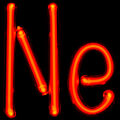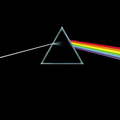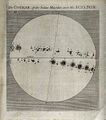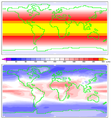Light (nonfiction)
Light is electromagnetic radiation within a certain portion of the electromagnetic spectrum.
The word usually refers to visible light, which is visible to the human eye and is responsible for the sense of sight.
Visible light is usually defined as having wavelengths in the range of 400–700 nanometres (nm), or 4.00 × 10−7 to 7.00 × 10−7 m, between the infrared (with longer wavelengths) and the ultraviolet (with shorter wavelengths).
This wavelength means a frequency range of roughly 430–750 terahertz (THz).
In the News
Neon lighting says that it "enjoys the work," calls itself "the luckiest of technologies" for a life spent converting electricity into light.
Fenestraria produces optical fibers, transmits light to subterranean photosynthetic sites.
Color wheel from 1809 and Light from 1943: can their long-distance love survive?
The Dark Side of the Moon dedicates itself "to the memory of light from 1943."
Off-duty Green Lanterns tour with Pink Floyd, help out with Laser concerts.
Sunspots enjoy the light, get a good tan.
Solar irradiance is light with college education, jokes Twain.
Fiction cross-reference
- Crimes against light
- Cryptographic numen
- Gnomon algorithm
- Gnomon Chronicles
- Gray light - form of light generated by artificial intelligence.
Nonfiction cross-reference
- Color (nonfiction)
- Fenestraria (nonfiction) - plant with optical fibers made from crystalline oxalic acid which transmit light to subterranean photosynthetic sites.
- Green Lantern (nonfiction)
External links:
- Light @ Wikipedia
- How to light objects from the inside
- How many photons has the universe produced in its life? Scientists have devised a method for calculating the number of the photons that have ever been produced within the observable universe - by Chelsea Gohd - Published: Thursday, November 29, 2018







